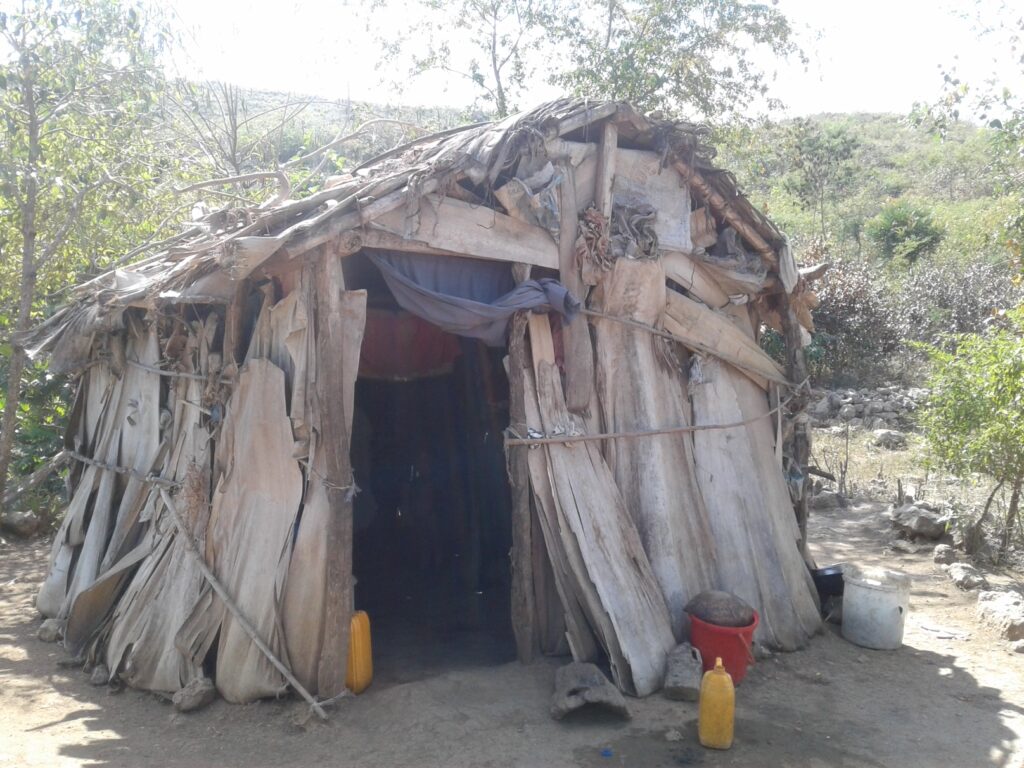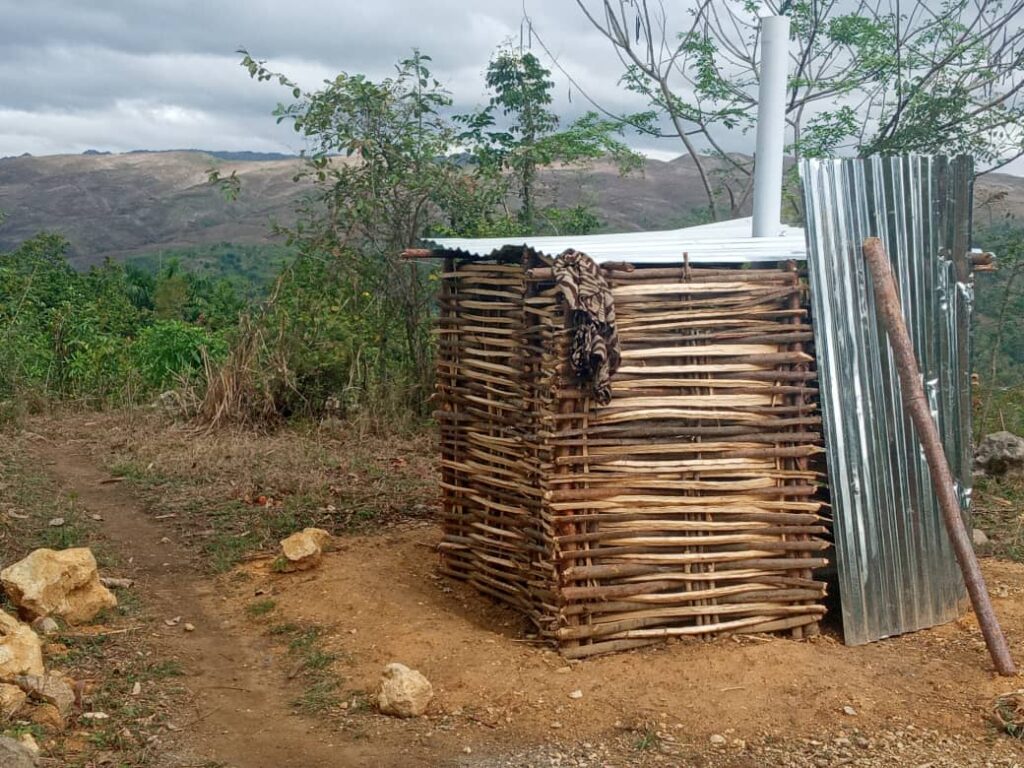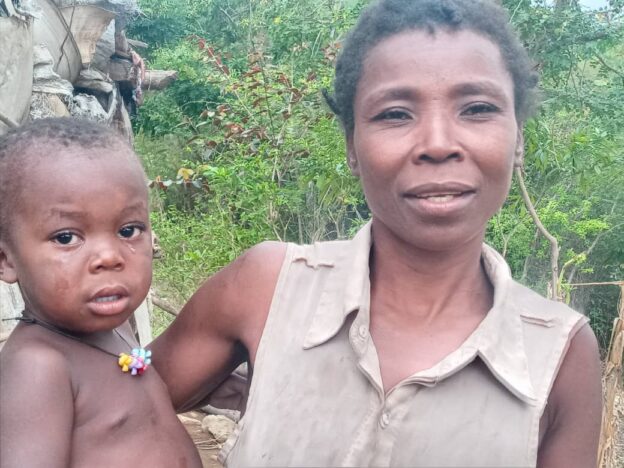Roseline lives with her husband and their five children in Seresit, an area of Woch Milat, the southern part of a valley in central Laskawobas along the southern bank of the Artibonit River. Their house is unusually isolated, standing a short walk along a serpentine path from the main trail through the area. No other houses are within a stone’s throw of theirs.
The CLM team is lucky to have found the family. Perhaps because of their isolation, the leaders of their community failed to mention them during the open meeting that launched the CLM selection process. CLM staff is trained to look for forgotten households. It happens often enough. But Roseline’s is too hidden for us to have come across it.
The CLM supervisor for the area, Wesnel Charles, was interviewing one of her neighbors to evaluate her for inclusion, and the woman asked him whether he had spoken to Roseline. We do not explain the purpose of these interviews, but this woman told Wesnel that the questions he was asking made her think that he was looking for especially poor families and that if she did not tell him about Roseline, it would be a sin. She showed Wesnel how to find Roseline’s home, and he went off to meet her.
The family’s need was obvious. They were crowded into a collapsing, one-room hut made of sticks and palm-seed pods. They had no livestock, not even a chicken. They had lived in the past from farming, planting mainly manioc and sweet potatoes. They do have access to the plot of land they live on. But her husband, Mickes, had been sick for months, and hadn’t planted anything. It was early afternoon, and they had not yet had anything to eat, nor did they know what or whether they might eat the rest of the day.

The family has begun to make small, but clear progress, though their two steps forward have not been coming to them without a step back. Roseline used the transportation stipend she received at her first training workshop to buy a hen, and was excited to see it hatch its first brood of chicks. But the chicks all died. The hen remains, and seems healthy, and Roseline continues to hope that it will reproduce.
She chose goats and turkeys as the assets for the program to transfer to her, and she received two female goats and a pair of turkeys as well, and all of her animals appear to be thriving. Her turkey hen had nine chicks, and while animals killed five of them, the other four are growing well. The family is keeping a close eye on them. If all four survive, they will represent a major windfall. The couple’s dream is to raise the animals until they have enough value to be able to sell some and buy a small cow and then raise the cow until they can use it to buy more land.
For the time being, they are living on the charcoal Mickes can make. He cuts down trees or thins branches and converts them. Either he or Roseline then bring a sack of it to market in Laskawobas. This involves the long hike out of the valley and down the road to downtown, all off it done with a sack of charcoal on their head, but it is the only income they have, other than their very small CLM stipend. And the stipend lasts just six months. It will run out soon.
But one sign of hope is how seriously they are taking the tasks that CLM sets before them. They received most of the materials they needed to install a pit latrine, and CLM sent a mason to make and install the platform and seat. But the couple themselves was responsible for enclosing it. Case managers can have a lot of trouble convincing families to do that extra work. Just surviving is so hard. But Roseline and Mickes walled theirs in quickly and well, even though they didn’t have much in the way of material to work with. It is clear evidence that they are willing to work.

